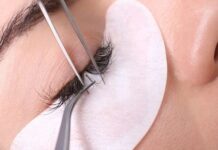Many people struggle with addiction, but they often don’t get the treatment they need to kick the habit. This can lead to issues that affect their lives, including job loss, financial problems, and even legal troubles like DUI (driving under the influence) charges or even arrests. We’ll go over what addiction treatment looks like and why it’s so helpful for people struggling with addictions of all kinds.
If you have an addiction, it can be extremely difficult to get the help you need. There are many misconceptions about addiction and treatment, and it’s often hard to overcome these misconceptions in order to get the treatment you need. For those who have dealt with alcoholism or drug abuse, getting the help they need can make all the difference to the world between a successful recovery and falling right back into bad habits down the road.


However, addiction treatment can also benefit people who have never struggled with addiction, but still feel like their use of alcohol or drugs is a problem in their lives.
In this article, I will explain why getting addiction treatment is so important, as well as why certain aspects of addiction are often overlooked during recovery.
One of the most common questions that potential clients ask about addiction treatment is why it is so important.
One of the most common questions that potential clients ask about addiction treatment is why it is so important. The answer is simple: because addiction is a disease, and like any other disease, it needs to be cured in order for you or your loved one to live a normal, happy life once again.
Addiction is progressive, meaning that it will only get worse if left untreated. Addiction will change the way you think and behave in ways beyond your control; these changes are caused by how long an individual has been abusing drugs or alcohol and how much substance they consume at one time. These changes make it harder to abstain from drug use—even when you want to—and can result in serious consequences for your health and well-being.
There are also many social stigmas associated with addiction that prevent people from seeking out help when they need it most. However, treatment for addiction does work! Millions of individuals have recovered from alcohol or drug de addictions successfully with the help of professional treatment centers.
The majority of those who struggle with addiction can not overcome their problem(s) without professional assistance from an experienced, trained staff.
Addiction treatment is critical because the majority of those who struggle with addiction cannot overcome their problem(s) without professional assistance from an experienced, trained staff. In fact, it is estimated that only one out of every ten people suffering from addiction can successfully overcome their disease through willpower and support from family and friends alone.
Everyone needs help to recover from drug or alcohol dependency—and it’s important to understand that addiction is a chronic disease. It’s not a moral failing or character flaw; it’s a medical condition affecting the brain and body. The proper treatment for chemical dependency reduces the likelihood of relapse, develops coping skills for future stressors, improves relationships, enhances a patient’s overall health, and provides many other benefits that translate into increased life quality.
Whether you are struggling with alcohol or drug addiction, there is a high level of risk involved to your health and safety when attempting to quit on your own.
Whether you are struggling with alcohol or drug addiction, there is a high level of risk involved to your health and safety when attempting to quit on your own. Addiction is a disease that affects the brain—it’s not just about willpower. Without professional intervention and treatment, the body may begin experiencing withdrawal symptoms, which can be dangerous and even fatal if not properly monitored by a medical professional. It’s important to treat those symptoms under the care of experts who will know how to help you detox in a healthy way.
It doesn’t matter what kind of addiction you’re facing—you owe it to yourself (and your loved ones) to get help from trained professionals who know how to help you recover safely, comfortably, and effectively.
You may have tried to quit using drugs or alcohol in the past unsuccessfully.
You may have tried to quit using drugs or alcohol in the past unsuccessfully. For individuals in recovery, these attempts at quitting may have happened over and over again. You may have even gone through withdrawal symptoms at home, only to start using again after your intense cravings became too much for you to handle.
The truth is that quitting on your own can be extremely difficult. If you’ve tried and failed before, it doesn’t mean that you’re weak or that you’re powerless against this disease—but it does mean that addiction treatment could help you finally achieve lasting sobriety.
Even if you have managed to stop using drugs in the past, you may have found yourself returning to using them over and over.
Even if you have managed to stop using drugs in the past, you may have found yourself returning to using them over and over. Maybe you’ve tried to quit on your own, but it’s only lasted a few months before you used it again. Or maybe every time you’re able to stay clean for six months or longer, life throws a curveball that leaves you feeling overwhelmed, and you use drugs again.
If this has been your experience with relapse (returning to drug use), it’s important not to get discouraged. Addiction is a chronic brain disease characterized by compulsive drug seeking and use despite harmful consequences—and addiction isn’t something that people can control by being motivated enough at the moment. In fact, most people who try quitting on their own are unsuccessful because of this lack of control over their cravings and behaviors.
In addition to physical health risks, there are also many psychological reasons why getting treatment is recommended.
It’s important to understand that addiction is a disease. It has physical and psychological components, which means treatment needs to address both aspects of the problem in order for it to be effective. For many people with substance use disorders, their minds have become trapped within a cycle of cravings and addiction—these individuals can benefit greatly from mental health support as well as medical care.
Treatment also provides access to peer support groups, where you can find guidance and a sense of community while going through what can sometimes be a lonely experience. You’ll never feel alone when you’re connected with others who are on the same journey you’re on.
Read more about 6 Common Myths About Addiction And Treatment Centres
When you are under the influence of drugs or alcohol, you behave differently than you do when sober.
Whether or not you are aware of it, your actions while under the influence of drugs or alcohol addiction will likely be different than they are when sober. This is true whether you’re engaging in a hangout with friends, attending an event, or going about your daily routine (like stopping by the grocery store on the way home from work). While this may seem like an obvious statement to most people, what may not be so obvious is how your behavior will change.
You may take more risks and engage in behaviors that you wouldn’t if you were sober. You may even place yourself and others in harm’s way. In some cases, drug-related accidents have led to fatalities. Even if accidents don’t happen, you could still put other people at risk because of your behavior under the influence—for example, driving a car and getting into a car accident due to impaired judgment and reaction time. There is also the chance that your substance use could lead to legal problems (getting arrested for public intoxication or involved in domestic violence) that can have long-term consequences for your life.
Getting professional help for addiction can help you overcome your problem and find more stability in recovery.
When you make the decision to get professional help for an addiction, you’re taking the first step toward a better future. There’s no better way to receive the care and support you need than by attending a rehab program where trained professionals can carefully design your treatment plan according to your specific needs and challenges. In rehab, you will be surrounded by people who understand what you’re going through, and together, you’ll build connections that will help create a strong network of support for you in recovery.
In addition to receiving individualized treatment from doctors, therapists, and other healthcare staff members during your stay at rehab, you will also learn more about how your addiction works and how it impacts different areas of your life. This knowledge will allow you to create new habits and routines that don’t revolve around drug or alcohol use. You’ll also learn healthy ways of coping with life’s challenges so that you can avoid relapsing when things get difficult again after treatment ends.
6 Ways to Help an Addict
Addiction treatment can sometimes seem daunting to addicts and their loved ones, but it doesn’t have to be. There are things you can do now to help an addict move towards a successful recovery. Read on for 6 helpful ways to aid an addict in need of help today.
Plan Ahead If your friend or a family member has just come clean about his or her substance abuse problem, it might feel like you’re standing at a crossroads — with no idea which direction to go next. Don’t worry; there are some proactive steps you can take right away that will make all the difference in your ability to help an addict get his or her life back on track. Here are six things you can do today to aid an addict:
- Educate Yourself First and foremost, it’s crucial that you learn as much as possible about addiction and how best to treat it before jumping into action. The more informed you are, the better equipped you’ll be to handle any situation with confidence and compassion. If your loved one is in immediate danger of hurting himself or herself or someone else, seek professional help immediately.
- Get Involved If your loved one has just admitted he or she has a problem with drugs or alcohol, it’s time to get involved in his or her recovery process. You can do many things to help an addict who needs help right now — but first and foremost, make sure he or she gets professional treatment from a reputable drug rehab center.
- Educate Others It’s important that you educate others about addiction, too. Many people don’t understand how serious substance abuse problems are; they think addicts simply need to clean up their act and everything will be fine. That couldn’t be further from the truth! Addiction is a disease that requires lifelong treatment; if you want to learn more about how best to treat it, check out our comprehensive guide on what makes for effective substance abuse treatment.
- Understand Treatment Options When seeking help for an addict, it’s crucial that you know all of your options when it comes to treatment programs. Not all programs are created equal, and not every program is going to work for every person suffering from addiction. Seek information about various treatment options (including non-traditional methods) before making any decisions about where your loved one should go for help
- Be Patient With Your Loved One While it might seem like there’s no end in sight to your loved one’s addiction, recovery takes time. Be patient with him or her as he or she works through withdrawal symptoms and begins rebuilding a sober life.
- Offer Support After treatment ends, offer ongoing support as needed. Don’t expect instant results; instead, provide encouragement and support throughout your loved one’s journey towards sobriety. Remember: Recovery isn’t something that happens overnight — but it is something worth fighting for!






















